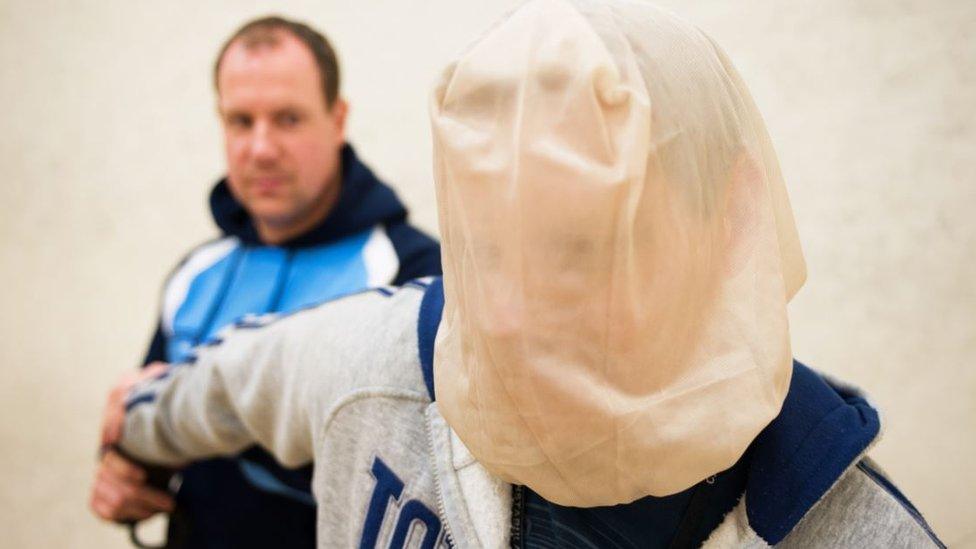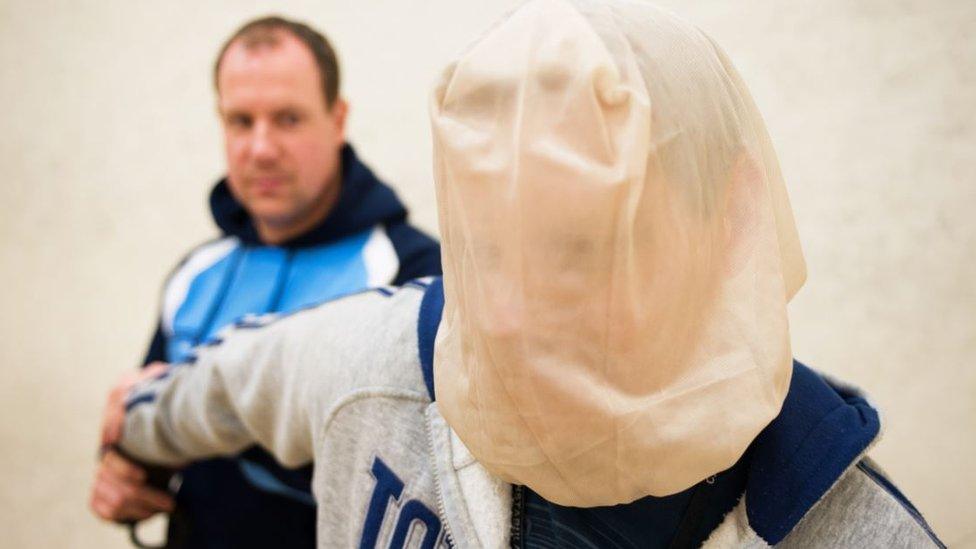West Midlands Police considers using spit hoods
- Published

A BBC FOI last November revealed the guards are already used by 17 of the UK's 49 police forces
West Midlands Police is considering using spit hoods on suspects.
The transparent mesh fabric hoods are used to prevent those arrested from spitting or biting officers and have already been adopted by 17 of the UK's 49 police forces.
Ch Con Dave Thompson said community consultation is under way.
Campaign group Liberty has said they are cruel and degrading, but the Police Federation maintains they "should be available as standard".
Steve Grange, from the West Midlands Police Federation, said officers were being assaulted "day in and day out" and the group had been lobbying the chief constable for some time.
"Clearly there are health implications... it's basically out of order and if there is any way it can be prevented then that should be brought in," he said.
Public concerns
Che Donald, lead on spit guards for the Police Federation, has said the hoods can prevent the uncertainty of infection from bodily fluids and the need to go on to anti-virals causing nausea and impacting on personal life.
Speaking at the Police Federation's annual conference, held in Birmingham on Tuesday and Wednesday, Mr Thompson said he had been convinced by local federation members to introduce them, but added "we are engaging in community consultation because we have concerns about how we are seen by the public we serve".
Mr Grange said he understood Mr Thompson's concerns "as a spit hood does give rise to visions of an article of torture, or Guantanamo Bay".
But he added that was "clearly not the case" and there was no reason for them not to be used.

What are spit hoods?
Mesh fabric hoods placed over the heads of suspects to prevent spitting or biting.
They can only be used once and are usually used in custody suites or when moving people in custody from one location to another.
Critics say spit hoods are distressing and humiliating, can cause panic in the detained person, and make it harder to notice if a prisoner is having difficulty breathing.
The forces who use them have said they are introduced when "proportionate, appropriate and justifiable" to protect officers.

- Published12 November 2016
